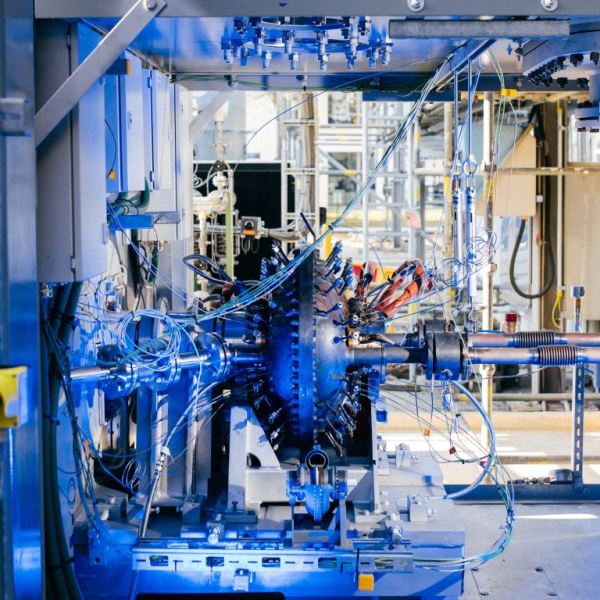Bengaluru: Adani Cement and Coolbrook announce their delivery agreement for the world’s first commercial deployment of the revolutionary RotoDynamic Heater™ (RDH™) technology to advance cement decarbonisation at the Boyareddypalli Integrated Cement Plant in Andhra Pradesh, India. This marks the first industrial scale deployment of Coolbrook’s RDH™ technology, advancing Adani Cement’s net-zero goals achievement by 2050 (validated by the SBTi) and Coolbrook’s goal of cutting 2.4 billion tonnes of annual CO₂ across heavy industry sectors globally.
This technology will decarbonise the calcination phase – the most fossil fuel-intensive stage of cement production. By providing clean heat to dry and enhance the heating value of alternative fuels, the technology enables a significantly higher substitution of fossil fuels with sustainable alternatives. This deployment is expected to directly reduce ~60,000 tonnes of carbon emissions annually with a potential to increase 10x in due course, marking a major step toward decarbonising cement manufacturing.
Critically, the RDH™ system will be powered entirely by Adani Cement’s large-scale renewable energy portfolio, ensuring that the industrial heat generated is completely emission free. This deployment demonstrates the real-world feasibility of clean, electrified industrial heat powered entirely by renewables. This positions Adani Cement to spearhead India’s emergence as the world’s clean manufacturing cement hub.
Mr Vinod Bahety, CEO – Cement Business, Adani Group, said: “The world’s first commercial deployment of Coolbrook’s RotoDynamic Heater™ within our operations marks a pivotal moment in our decarbonisation journey. This is a major leap towards achieving our net-zero goals. By integrating such cutting-edge electrification solutions into our cement production, we are accelerating the shift away from fossil fuels, reducing emissions at scale, enhancing the utilisation of clean energy sources, and setting a new standard for low-carbon cement manufacturing. This ongoing partnership reflects our unwavering commitment to climate leadership and delivering long-term value through innovation and sustainability. This milestone underscores our legacy as pioneers and highlights our transformative actions towards becoming a global building materials solutions powerhouse. We are building a stronger eco-system of partners like Coolbrook along with our R&D investments.”
The project provides a strong and scalable use case for deep industrial decarbonisation with significant potential for replication. Coolbrook and Adani Cement have identified multiple follow-on opportunities for deploying RotoDynamic Technology across Adani Cement’s industrial operations and share an ambition to launch at least five additional projects within the next two years.
Going forward, RDH™ technology will play a pivotal role in decarbonising Adani Cement’s production, improve process efficiency, and accelerate the Company’s sustainability goals including improving AFR (alternative fuels and resource materials) usage towards 30% and increasing the share of green power to 60% by FY28. The first generation RDH™ will deliver hot gases at around 1000°C, which will facilitate drying of alternate fuels, making its utilisation greener and more efficient, representing a breakthrough in high-temperature electrification for cement production.
“Entering into the first industrial-scale project in the world with Adani Cement marks a transformative step for industrial electrification in one of the world’s most vital cement markets,” said Mr Joonas Rauramo, CEO of Coolbrook. “Our mission is to make RotoDynamic Technology a new industry standard for decarbonising hard-to-abate sectors. Together, we’re redefining how cement is produced – cleaner, more efficient, and ready for a net-zero future.”
Adani Cement’s broader sustainability leadership is reflected in it being among the four large-scale cement companies globally to have SBTi-validated net-zero targets and global collaborations including being the world’s first cement manufacturer to join the Alliance for Industry Decarbonisation (AFID), under IRENA.

